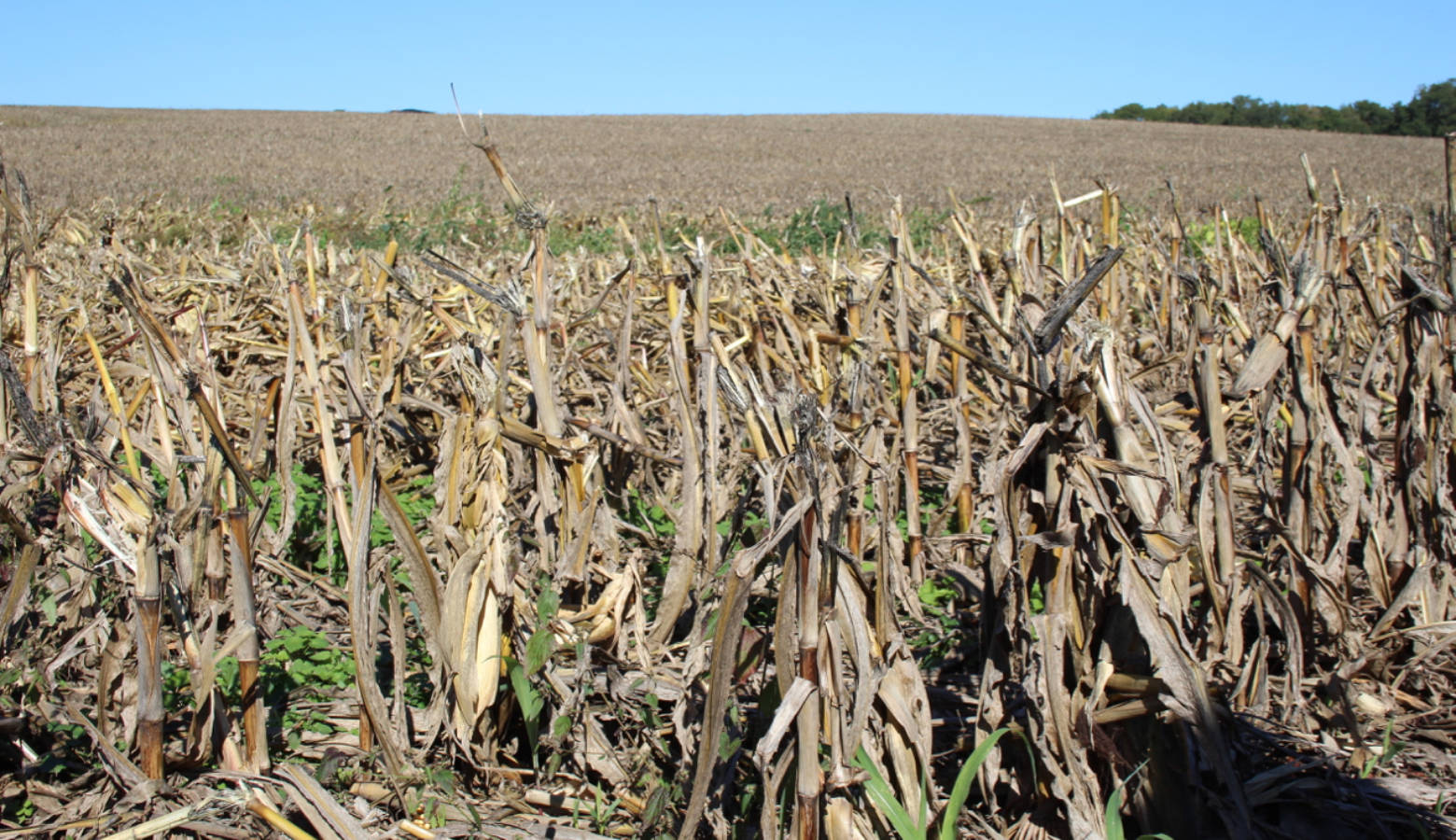Report: Indiana Crops Could Suffer From Climate Change’s Impacts

A new report from Purdue University says because of annual higher temperatures and other effects of climate change, Hoosier crops could suffer. Those agricultural products currently bring in roughly five percent of the state’s gross domestic product. Indiana Public Broadcasting’s Samantha Horton reports.
Purdue Climate Change Research Center’s newest Indiana Climate Change Impacts Assessment report examines climate change’s impact to Indiana and highlights implications for crops due to rising temperatures.
The research projects annual temperatures will rise 5 to 6 degrees by mid-century.
Purdue hydrology professor Laura Bowling says corn yields could be impacted by both the extreme heat stress of 95 degree-plus temperatures and warm evenings.
“It’s projecting a yield decrease on the order of three bushels for each degree Fahrenheit increase in nighttime temperatures,” says Bowling.
Bowling says days suitable for field work between February and April are also at risk. They have declined in recent years and she sees the trend continuing.
“Our future model projections show a really slight decline on average in the number of days suitable for field work, but a great increase in the variability,” Bowling says.
That variability includes some years with drier fields – which mean earlier field access – and other years that could have fewer days to get in work, due to moisture issues and increased risk of flooding.
Another climate change effect is an increase in CO2, carbon dioxide, which some argue would be beneficial to crops. But Bowling says that’s not necessarily what the research shows for all crops, such as corn.
“There’s increasing evidence that corn is not likely to benefit much from this increase CO2,” she says. “There have been field experiments where corn is grown under elevated CO2 and we don’t see a substantial yield benefit. Soybean might be able to make better use of that additional CO2.”
Agriculture plays a significant role in Indiana’s economy, generating about $31 billion annually in sales and providing more than 107,000 jobs throughout the state. However, Purdue Dean of Agriculture Karen Plaut points out the impact will go beyond the agriculture industry.
“It’s not just about how it effects the agricultural community, it’s how it effects everybody and using some of the new technology to help us address some of these issues that we’ll see with climate change,” says Plaut.
Jeffrey Dukes, Purdue Climate Change Research Center director, says he hopes the possible solutions mentioned in the report will bring about conversations about next steps to address climate change.
“We’re not saying we have all the answers in this report, we’re trying to put out a bunch of ways in which people can cope with the changes that are coming but we really hope that people will start talking about it,” says Dukes. “We want to see Hoosiers maintaining our economic competitiveness, our ecological communities, basically maintaining things that we value in this state and if we don’t acknowledge that the climate is changing and will change more in the future, then we’re going to make some bad decisions.”
The report is a part of a series that address the impacts climate change has on health, infrastructure and more.
